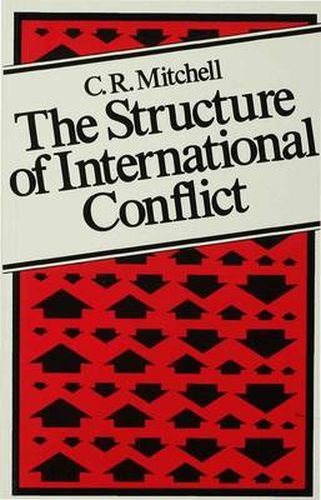Readings Newsletter
Become a Readings Member to make your shopping experience even easier.
Sign in or sign up for free!
You’re not far away from qualifying for FREE standard shipping within Australia
You’ve qualified for FREE standard shipping within Australia
The cart is loading…






This title is printed to order. This book may have been self-published. If so, we cannot guarantee the quality of the content. In the main most books will have gone through the editing process however some may not. We therefore suggest that you be aware of this before ordering this book. If in doubt check either the author or publisher’s details as we are unable to accept any returns unless they are faulty. Please contact us if you have any questions.
An examination of human behaviour within the framework of conflict, in which the author attempts to answer questions pertaining to conflict by examining common structures and processes found in human conflicts in many settings. He demonstrates how such common features reveal themselves in conflicts as ostensibly different as international war and interpersonal disagreements in organizations. Ideas and insights are drawn from a wide variety of disciplines, including political science, international relations, social psychology and the sociology of conflict and are combined in a framework that provides a guide to the genesis and course of contemporary disputes, whether between states, communities, classes or families. Particular emphasis is laid upon the complex and interlocking structure of conflicts and the way in which internal differences affect the ability of adversaries to prosecute a conflict successfully, or conclude a compromise peace satisfactorily. Attention is also directed towards the psychology of being in conflict and how this affects the adversaries view of others, the behaviour used in this conflict and the range of outcomes considered feasible and acceptable. The study also attempts to deal with the problems of peacemaking for third parties and analyzes the type of actions open to potential intermediaries attempting to end or manage disruptive disputes.
$9.00 standard shipping within Australia
FREE standard shipping within Australia for orders over $100.00
Express & International shipping calculated at checkout
Stock availability can be subject to change without notice. We recommend calling the shop or contacting our online team to check availability of low stock items. Please see our Shopping Online page for more details.
This title is printed to order. This book may have been self-published. If so, we cannot guarantee the quality of the content. In the main most books will have gone through the editing process however some may not. We therefore suggest that you be aware of this before ordering this book. If in doubt check either the author or publisher’s details as we are unable to accept any returns unless they are faulty. Please contact us if you have any questions.
An examination of human behaviour within the framework of conflict, in which the author attempts to answer questions pertaining to conflict by examining common structures and processes found in human conflicts in many settings. He demonstrates how such common features reveal themselves in conflicts as ostensibly different as international war and interpersonal disagreements in organizations. Ideas and insights are drawn from a wide variety of disciplines, including political science, international relations, social psychology and the sociology of conflict and are combined in a framework that provides a guide to the genesis and course of contemporary disputes, whether between states, communities, classes or families. Particular emphasis is laid upon the complex and interlocking structure of conflicts and the way in which internal differences affect the ability of adversaries to prosecute a conflict successfully, or conclude a compromise peace satisfactorily. Attention is also directed towards the psychology of being in conflict and how this affects the adversaries view of others, the behaviour used in this conflict and the range of outcomes considered feasible and acceptable. The study also attempts to deal with the problems of peacemaking for third parties and analyzes the type of actions open to potential intermediaries attempting to end or manage disruptive disputes.